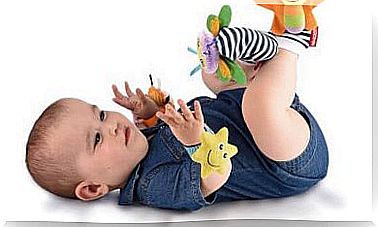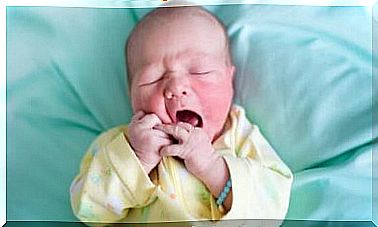Life In The Womb: Emotional Implications

Although there is more and more information about life in the womb, this stage is still largely unknown. Throughout this article, we are going to talk a little about what the baby experiences during pregnancy and what its implications are.
The baby feels and suffers
While development in the womb was long thought to be purely biological, the role played by emotional states is becoming increasingly clear.
The communication of emotional states with the baby is mainly produced by the exchange of hormones and by physiological reactions.
From the sixth week of pregnancy onwards, the baby is able to pick up the rhythmic noises that surround him, such as the movements of the amniotic fluid or the mother’s heartbeat. These noises are very pleasant for the little one.
From the twelfth week onwards, he begins to become sensitive to his mother’s emotional stimuli. He is already able to hear and recognize your voice and is thrilled to hear it. The baby can already understand if she is distressed or calm, in addition to being able to distinguish whether the mother speaks to him with affection or not.
Although the baby does not have actual emotions, he does have feelings that arise based on the thoughts, feelings and words he receives from his mother. Thus, he can feel pleasure, well-being, alertness, as well as feeling loved or rejected. All of this will depend on maternal reactions.

Emotional implications of life in the womb
Life in the womb has more impact than you think. After all, it is from this initial moment that we begin to develop beliefs and behaviors that will accompany us for the rest of our lives.
Stress and anxiety are the emotional states that are transmitted more quickly. Babies who absorb negative and painful emotions during pregnancy are more at risk of having a difficult birth.
In addition, they also tend to have trouble sleeping and are prone to colic, cry more, and tend to be less sociable. The negative emotions felt in pregnancy can also affect your IQ and increase your risk of developing Attention Deficit Hyperactivity Disorder.
In turn, children who have felt and absorbed positive emotional states during pregnancy will be born with more weight, will eat and sleep without difficulty, and their immune system will be more developed. Thus, they will have more chances to be happy, peaceful and balanced people.
Furthermore, if during pregnancy the woman frequently experiences states of fullness, the baby will record this information in her cellular memory. He will try to experience these moments during his life, thus becoming a happier person.
love your child and he will love himself
It’s not just what you feel that affects your future child’s emotional development. In fact, what you think about him will also have a huge impact.
A fetus that finds itself in a harmonious environment and receives everything it needs from the mother will feel calm. He will experience security and love and so will develop smoothly. A child who is wanted develops knowing he is loved and protected. All these feelings will accompany you into your adult life.
On the other hand, a baby that comes unplanned or wanted and that causes a conflict in the mother generates a feeling of rejection within her. He notices the negative emotions his mother feels towards him.
Consequently, he lives the 9 months in enormous insecurity. This is because the person on whom he completely depends, who must offer food and love, does not love him.
If, for example, a pregnant woman loses a loved one and this event causes her to be in a state of deep sadness disconnecting from her pregnancy, the baby will feel helpless.
Or, if the mother suffers from stress and anxiety at work, the baby will feel those worries. If a mother feels abandoned or abused by her partner, the baby will also experience abandonment and abuse.

Life in the womb: living positively
What can be done to give the baby a positive emotional life in the womb?
- Talk to the baby, sing or read stories. Both the father and the mother should try to develop an emotional bond with the child through the voice. Say sweet and loving words.
- Try to frequent quiet spaces and get in touch with nature. Go outdoors.
- Put on calm music for your baby to hear as it helps him to feel calm and collected.
- Visualize your child with positive qualities. Imagine the child being happy, successful, and loved at every stage of his or her life.









